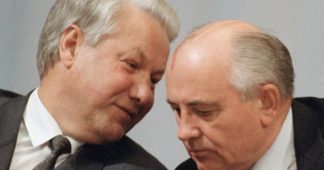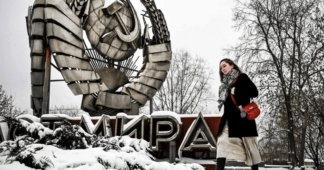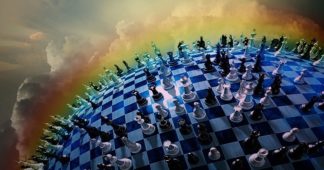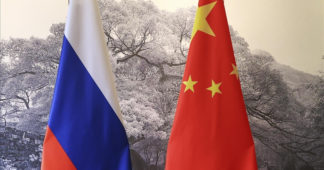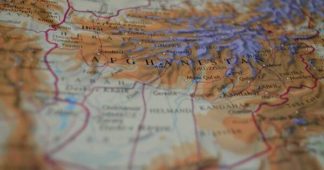By Tamás Krausz (*)
First thesis
Even though the imperialism of the 21st century is connected to the developments of the 20th century with a thousand threads, there have been significant shifts. Albeit the former criteria of imperialism have not lost their validity as the “economic and territorial redivision of the world”, the neoliberal-transnational world order, which preserved the plundering character of capitalism, has created the unlimited power of the former colonizers, the USA and the transnational companies within the framework of the so called information society. All these have burdened the peoples of the world at the periphery and semi-periphery of the world system with new inequalities, oppressive structures and a wave of wars.
At a global level, after the collapse of the Soviet Union the bipolar world order was placed under the exclusive hegemony of the USA, which manifested itself in the unlimited and unpunished wars waged by the NATO and the USA. The history of the unipolar world system, with its unquestionable American hegemony has not yet ended. In order to transform the oil and energy markets, the arms market, the territorial-commercial routes and spheres of interest in the territories of Northern Africa, Central Asia and the Middle East, the American imperialism launched new and new wars: Afghanistan, Iraq, Libya, Syria, and then Ukraine and Russia, and the “enclosure” of the former Soviet republics. The radical Eastern expansion of the NATO from the mid-1990s was part and parcel of this global rearrangement, which occurred in spite of the fact that the great powers had reassured the Soviet leaders, above all Gorbachev that after the German unification, the NATO would no further be expanded. As we know, exactly the latter happened. However, the gradual Eastern expansion of the NATO, that was executed in several steps, and the role of the USA as the gendarme of the world met new challenges. Above all, the economic advance of China and partly India, the military strengthening of Russia and the two wars in Chechnya seemed to surpass the catastrophic decline of the 1990s. When the American power elites understood that the unipolar world system may reach an end, they started to deploy the usual miliary tools and strategies: triggering armed tensions, rearmament and the second edition of the Cold War.
The hunger and crisis of the American profit incited the American elites to “contain” the rivals. Above all, they decided to destroy the century-old European energy markets, primarily the German-Russian economic relations. With this they sought to kill two birds with one stone: the confrontation of the European Union and Russia, the weakening of the EU, and its placing under American “tutelage” and the weakening and destruction of Russia, while the American armament industry could only be saved at the price of new wars, in the interest of the increase of profit.
Second thesis
Ukraine received a key role in this strategy. The recognition is, of course, not novel since already Bismarck thought one and half century ago that the real base of operation against Russia is the periphery of the empire, Ukraine. But this territory was also important from the perspective of global capital accumulation, primarily because of its agricultural opportunities. The real big “target” has, nevertheless, always been Russia. Already at the beginning of the 1990s, Brzezinski himself, the famous political scientist and American advisor of national security outlined the possibility of the economic-territorial division of Russia. This aspiration has been formulated since then several times in the “professional” circles; recently, Victoria Nuland, the “old veteran” of the American foreign affairs spoke of this objective.
In the short run, NATO, under the leadership of the USA, sought to “rescue” the most developed republic of the former Soviet Union from the “Russian sphere of interest”. Undoubtedly, Ukraine as an experiment of a new, modern nation-state, almost without historical antecedents, also seemed to be viable. After all, since the change of regimes (1989-91), Western experts have been pondering over the “big question” of how to seize the Ukrainian state unit, which had very different characteristics from the former Eastern European allies of the Soviet Union.
The “transfer” of Ukraine to the Western sphere of interest, however, met great difficulties. Namely, the country was connected to Russia, the “Russian world” through a whole network of its economic, political, linguistic, cultural, mental-historical relations as well as ties of kinship, primarily because of the developments of the Soviet era. The multiethnic population, which counted 40 million people (amongst them 15-20 million ethnic Russians, mainly in Kyiv, Southern and Eastern Ukraine) further complicated the question. The Western and Ukrainian power-economic elites found a “final solution” in the transformation of Ukraine into an “anti-Russia”, which could be the basis of the national cohesion. At the beginning, even in Russia, intellectual groups, many middle-class people, who had visited the West, were open to this enterprise because they saw the Ukrainian experiment as a democratic challenge to the traditional, conservative, autocratic regime (“multi-party system”, privatization, the free flow of capitals and cultures, under which we mean the free flow of a particular Western culture).
However, the “introduction” of the Ukrainian national culture as the chief objective of this “Westernizing” process, which received massive support from several American-Canadian-European foundations and volunteers, naturally could not lead to anywhere because the creation of the national culture is a long-term, century-long economic-social process.
Therefore it is not surprising that already at the time of President Yushchenko (2005-10), under the banner of “democracy” and “national independence” strongly anti-Russian, Russophobic voices and trends came to the fore, not accidentally, and not without Western support. One should not underestimate the active role of Canada in the “rescue” of the Ukrainian far-right immigration, the Ukrainian fascism, and the Canadian Ukrainian immigrants. Canada also played an important role in the “preservation” and further growth of the Eastern European and Ukrainian fascist far right-wing immigration, in the defense of the “liberal democracy”, of course.
What kind of overtly recognized tradition was behind the Ukrainian national independence? Bandera, and the local commander of the Waffen S, Shukhevych, the Ukrainian Insurgent Army, the Organization of Ukrainian Nationalists. The flag of democracy and national independence was seized by the intellectual successors of the Nazi firing squads, Nazi collaborators, with a strong, Western Ukrainian influence. Only the Soviet culture could be confronted with this national “culture”, which, however, immediately received a Russian “stigma” in the official propaganda.
The direct roots of the Zelenskyy-regime go back to the transformation of 2013-14, whose peak was the coup during which the legally elected president was expelled from the country. The demonstrating masses, whose majority rebelled against the corrupt regime, became mere tools in the process of placing Ukraine under American tutelage. The “democratic transformation” was financed with five billion dollars by the United States. Amongst others, they trained Banderist armed irregular troops, who overthrew the parliament (Rada) in 2014. All these happened with the overt objective that the NATO “incorporates” Ukraine, which gives an opportunity to “contain” and isolate Russia.
Third thesis
Thus, the regime of 2014 in Ukraine had been established through the critique of a corrupt, oligarchic capitalist regime, which was dependent on Russia, and it ended with the introduction of a pro-Western, autocratic, nationalistic dictatorship. The autocratic, presidential regime was also introduced in Russia in 1993 with Western financial and political support, under the leadership of Yeltsin, which – after destroying the legitimate parliamentary system – was stabilized as the basis of the contemporary conservative rule. The ideological-legitimating starting point of the Russian oligarchic capitalism – as the “successor” of the Soviet Union – is a sacralized-instrumentalized picture of the antifascist tradition of the Great Patriotic War, which is confronted with the Russophobic-nationalistic intellectual atmosphere of the Ukrainian pro-Nazi regime. The coup of 2014, the pro-Western turn induced Russia to annex the Crimean, which was a kind of answer to the planned expansion of the NATO – also to include the peninsula. The new Ukraine with its “de-communization” laws (the abolition of the memories of the Russian and Soviet culture and history) also implemented almost all degrees of Russophobia and the anti-Soviet sentiments to the rank of the official ideology, including the abolition of the official use of the Russian language. The “Banderist” ideology and the wild Russophobia have become the main elements of the national cohesion in Ukraine. During its historical evolution, Russophobia has undergone several transformations, and it became manifest in various forms, starting from the early British tradition through the fascism/Nazism to the “democratic” Russophobia in the Western center of the contemporary world system, which, in accordance with the “laws” of cultural racism assumes the cultural superiority of the West over Russia and the Russian people. In many places the ethno-nationalistic Renaissance, which emerged as a response to the neoliberal globalism, has become one of the main functions of state nationalism, excluding class identities. Russophobia “classically” reflects the character of the geopolitical concurrence struggles, which occur within the hierarchical structure of the world system. Thus, Russophobia and the interrelated anti-Soviet sentiments in Ukraine and the Western states fundamentally constitute a nationally organized political ideology, which entails the destruction, the cultural extermination and the territorial division of Russia as final assumptions of its main objective. The above described ideological confrontation reflects not only the “defense of the Eastern Ukrainian Russians” and the national security interests of Russia, but it also expresses the fact that behind the global geopolitical clash we can also detect a kind of ongoing civil war. Parallel to this, Russia acts as the representative of the multipolar world order against the hegemony of the USA. The former seeks to appear and stabilize as the counterbalance of the “collective West”, representing the geopolitical interests of the peripheral and semi-peripheral nations of the “Eurasian space”, Latin-America, and Africa. The NATO justifies the representation of its geopolitical interests with the defense of “democracy”, which is threatened by the autocratic regimes, above all, Russia and China. The loser of the relentless conflict is the overwhelming majority of the population of the world.
Fourth thesis
The contemporary war is a typically commercial-capitalist war, inasmuch as it is centered on the preservation of the hegemon position of the USA, the Western center of the world system, the expansion of the NATO, the defense of the geopolitical interests of Russia, the re-annexation of the Eastern territories of Ukraine and the rearmament of the ruling nations of the world. The latter moves the escalating spiral of the war, the deployment of the new and newer, destructive weapons. Recently, tanks have appeared on the fronts, which use missiles with depleted uranium, with “low-level” radioactive radiation like in Yugoslavia or Iraq. We are getting very close to a nuclear catastrophe.
The world has been watching all these passively. The victims of this horrible war are, above all, the peoples of Ukraine, whose losses are counted in hundreds of thousands, but the peace negotiations and diplomacy are hindered by the increasingly desperate battles that are fought with the most modern weapons. The obvious failure of the Western sanctions, which are applied without the consent of the population of the EU, the destruction of the former economic connections poses no obstacle for the armament producers to launch new, profitable enterprises in many regions of the world – in spite of the threat of a nuclear war. Further, the competitive disadvantage of the EU is increasing, to the advantage of Uncle Sam – for instance, because of the increasing costs of the consumed energy resources in the EU.
We, the supporters of diplomacy, peace negotiations and the earliest possible ending of the war, cannot wait any longer, since eventually the third world war is fought in front of us.
We should stop the rattling of firearms, and give a chance to the armistice and peace negotiations. But the precondition of all these is a wide peace movement in national and global frameworks. We are turning to every decent citizen: let’s protest against the war, let’s go ahead for a new anti-imperialist alliance against the worldwide spread of capitalism, genocide, bloodshed, the destruction of the environment, corruption, inflation and economic crisis, misery and hunger, for the creation of a new, communal society!
(*) Leftist intellectual, Historian specialized in Soviet and Russian History, professor emeritus at Budapest University Eötvös Loránd, Tamás Krausz is Professor of Russian History at the Eötvös Loránd University of Sciences in Budapest, and Head of the Department of Eastern European Studies. One of the best-known radical intellectuals and political activists in Hungary, he has published widely throughout the world and is the President of the Editorial Board of Eszmélet, the sole Marxist theoretical and political quarterly in Hungary, founded in 1989.He is the author of Reconstructing Lenin: An Intellectual Biography. The text we publish here is the report of the writer to the conference of ATTAC Hungary on March 4th, 2023
We remind our readers that publication of articles on our site does not mean that we agree with what is written. Our policy is to publish anything which we consider of interest, so as to assist our readers in forming their opinions. Sometimes we even publish articles with which we totally disagree, since we believe it is important for our readers to be informed on as wide a spectrum of views as possible.
